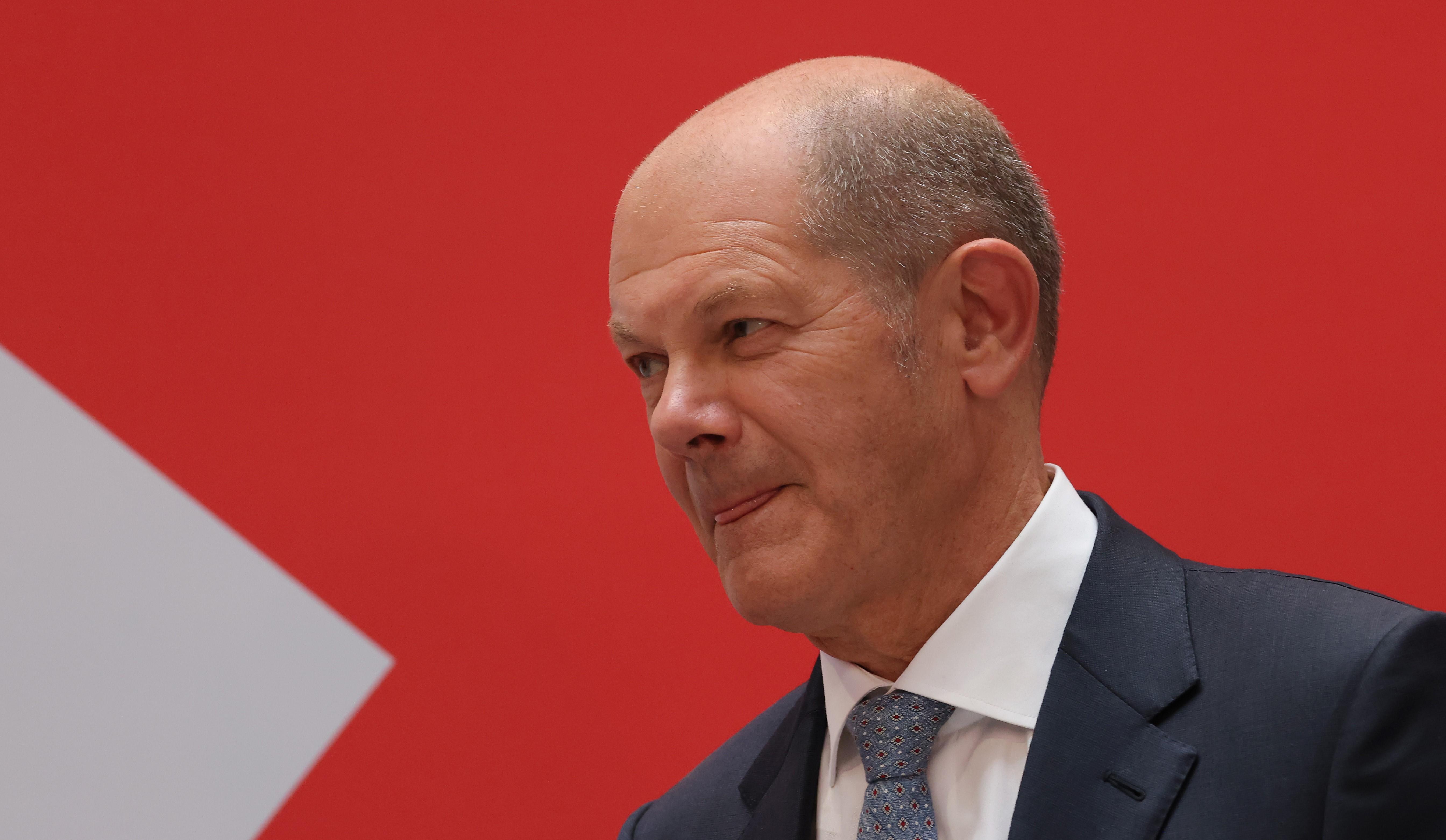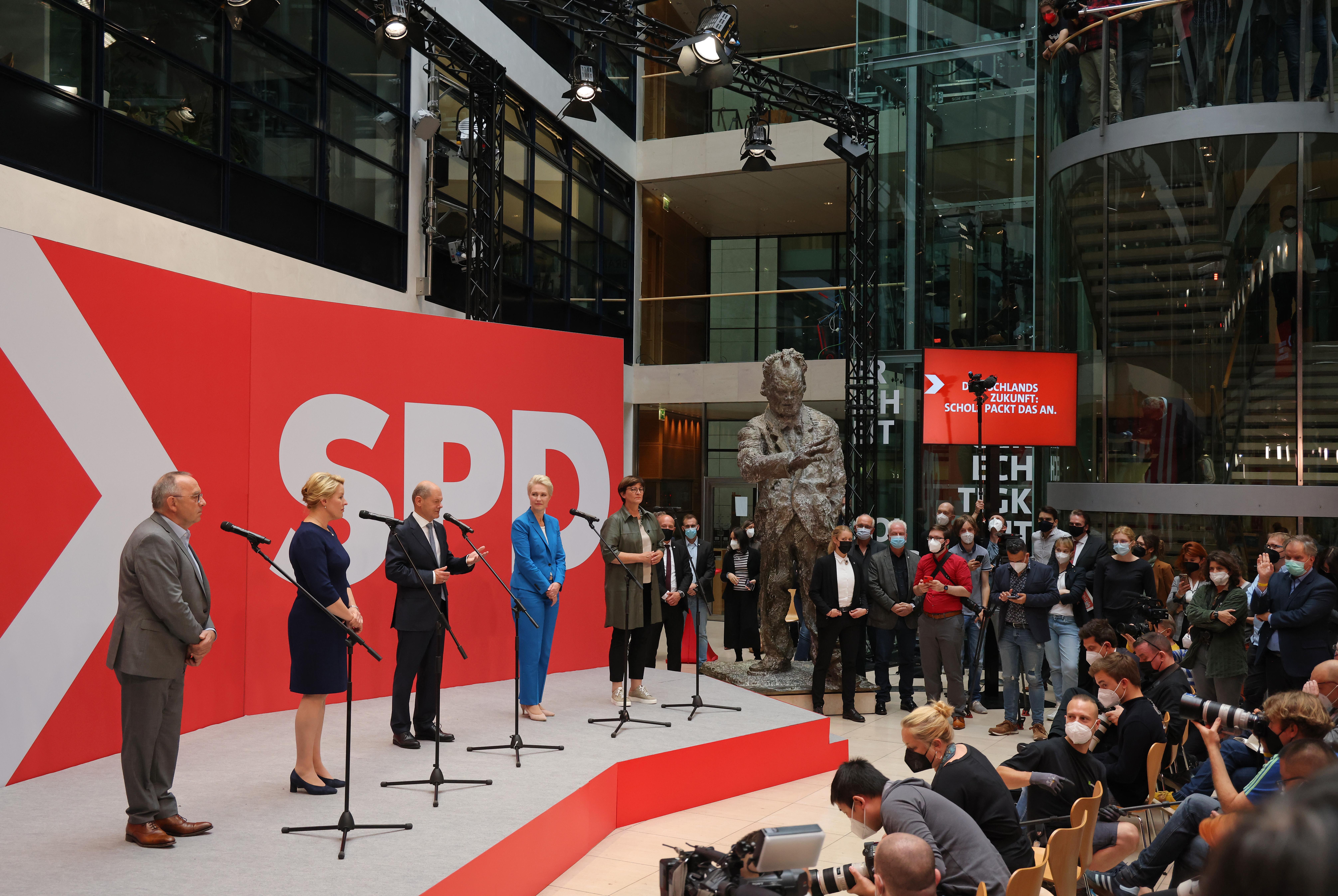How Olaf Scholz's Political Views Differ From Angela Merkel
As Olaf Scholz prepares to succeed Angela Merkel and take his post as Germany's newest chancellor, many people want to know about his political views.
Sept. 27 2021, Published 2:11 p.m. ET
As long-time Chancellor of Germany Angela Merkel plans to step down from her role, an election has just wrapped up to determine her replacement. Olaf Scholz is poised to win the race against a handful of competitors from varying political party alignments.
For Scholz, his own political views could drastically change the path for Germany—Europe's largest economy overall.
Merkel steps down as German Chancellor after 16 years
Chancellor Angela Merkel (of the Christian Democratic Union of Germany, or CDU, political party) has been at the helm of Germany for 16 years. This means that she has directed the country through numerous crises, including the 2008 global financial crash and the first 18+ months of COVID-19.
"She has had to overcome several global crises during her time in office, not only for Germany, but also within the European Union, and with transatlantic partners as well as China and Russia," parliamentary correspondent Nico Friedl told reporters at VOA News.
Merkel will remain ingrained in German history as the first female chancellor as well as the first chancellor from East Germany. Now, she'll be the first chancellor to step down by her own decision.
Germany goes Social Democrat over CDU
Germany voted in current Vice Chancellor and Federal Minister of Finance Olaf Scholz as Chancellor by a narrow margin. Scholz is part of the Social Democratic Party of Germany. Known by its German acronym SPD, Scholz's party is Germany's oldest political party. SPD party members consider themselves center-left on Germany's political spectrum, while CDU is considered a center-right catch-all.
Ultimately, the Social Democrat candidate took home 25.7 percent of the vote, with Merkel's CDU trailing slightly at 24.1 percent.
What political views will Olaf Scholz bring to the table?
In recent elections, the SPD party has trailed in German and European Union elections. DW, a federally funded news outlet in Germany, discussed the political party and said, "The SPD has traditionally been the party of the working classes and the trade unions. The SPD's most fertile ground in Germany remains in the densely populated industrial regions of western Germany, particularly the Ruhr region in North Rhine-Westphalia, as well as the states of Hesse and Lower Saxony."
In contrast, DW describes the CDU as "popular with people over the age of 60, churchgoers, and those living in rural rather than urban areas. The CDU has also traditionally done well among small business owners and people with lower or medium education levels."
Olaf Scholz on climate change, refugees, and coalitions
Scholz implied that major climate change policies are coming for Germany—the fourth-largest CO2 emitting country ever. He wants "to lead a good government that will set the course for the decade ahead, to bring more respect into society, to modernize our industrial sector and, to halt the man-made climate change."
Germany is also a major refugee hub for people escaping persecution in their home countries. Recently, Scholz said clearly, "The responsibility for refugees goes above and beyond what is often discussed in this country. It isn't just Germany, but all of Europe has a responsibility, and we have to remember that almost all refugees, and there are millions in the world, have often found refuge in a neighboring country."
In the short amount of time since winning the election, Scholz has announced that the SPD plans to form a coalition with two other parties—the Greens and Liberals. He referred to the coalition as a "social-econological-liberal" alliance. In the past, Scholz has worked closely with Merkel, and that cross-party synergy isn't going anywhere.


